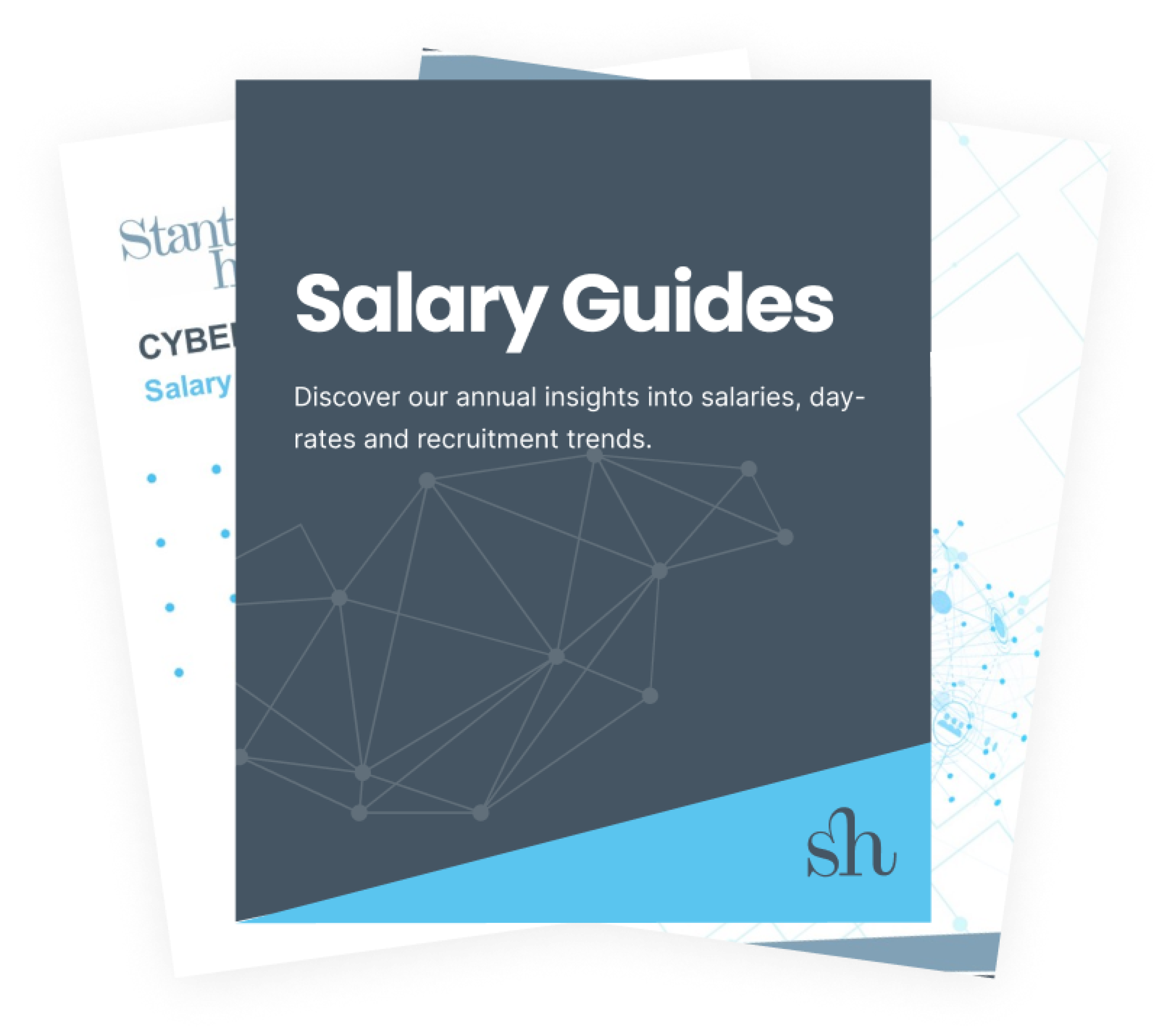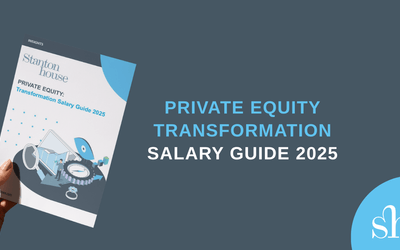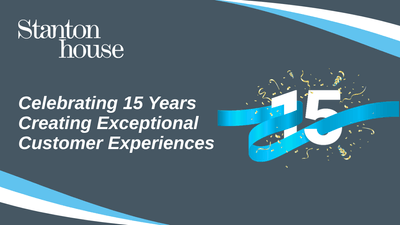
The Ultimate Hiring Guide Streamline Your Recruitment Process
Hiring the right candidate can be a challenging endeavour. As Benjamin Franklin wisely said, "By failing to prepare, you are preparing to fail." Proper planning is crucial to ensure your hiring process is efficient, successful, and stress-free. In this blog, we will delve into the critical aspects of planning your recruitment process, starting with one of the most vital yet often overlooked factors: timing.
Part 1: Timing is Everything
Timing plays a crucial role in both external and internal aspects of the hiring process. Externally, the average permanent finance hire takes approximately 6-8 weeks from the initial contact with a recruitment agency to the candidate accepting an offer. If your process extends beyond this period, you risk losing candidates and creating a negative experience for them. Internally, poor timing can lead to increased workloads for your team, potentially causing retention issues. Here are some rules to follow for effective timing:
Identify the Start Date: Determine when you need the new hire to join your team. Work backward from this date, allowing at least 8 weeks for the hiring process. Remember to consider notice periods, especially if it's a backfill. In such cases, consider interviewing quickly or hiring an interim candidate to buy time for finding the right permanent candidate.
Create a Timeline: Collaborate with your talent partner or recruiter to establish a detailed timeline for each stage of the hiring process. Schedule interviews well in advance to avoid last-minute complications.
Avoid Holidays & Busy Periods: Plan your recruitment process around holidays and busy times like month-end and year-end when candidate availability is limited.
Candidate Communication: Set specific times to update candidates and your recruiter throughout the process. Prompt feedback is crucial to keep candidates engaged and prevent them from pursuing other opportunities.
Stick to Your Timings: While finance can be unpredictable, adhering to your timeline and process will lead to a successful hiring outcome. Imagine the relief of not having an open vacancy for six months!
Part 2: Crafting the Perfect Job Advert & Description
As a hiring manager, have you ever wondered why you receive few relevant applications for your vacancy? The key lies in creating an appealing and informative job advert. Over my two years of recruiting in the finance sector, I’ve identified several elements that attract top candidates:
Good Branding & Design: A well-designed, eye-catching job spec demonstrates professionalism and commitment. Include your company logo and branding to create a positive first impression.
Employer Value Proposition (EVP): Highlight why candidates should apply by focusing on the five key pillars of EVP: compensation, career development, work-life balance, culture, and company purpose. These elements are often the primary reasons candidates seek new opportunities.
Opportunity to Add Value: Candidates want roles where they can make a difference. Clearly outline the role’s purpose and responsibilities, emphasising how the candidate can add value to your organisation.
Inclusive Language: Ensure your job descriptions and adverts use gender-neutral terms and consider neurodiverse characteristics. Inclusivity is crucial in attracting a diverse pool of candidates.
Team Structure: Provide details about the team and the reporting structure. This helps candidates visualise themselves within your organisation and adds depth to the opportunity.
Part 3: Optimising the Interview Process
In my role, I’ve been involved in hundreds of interview processes. Here’s what I’ve learned about creating an effective interview process:
Limit to 2-3 Stages: Even for senior-level hires, 2-3 interview stages are ideal. More than four stages are often counterproductive. If you haven’t decided after three stages, the candidate may not be the right fit.
Streamline the Interview Panel: Candidates should primarily meet the hiring manager, the hiring manager’s boss (if necessary), HR, and possibly one key stakeholder for commercial roles. Too many interviewers can complicate the process.
Avoid Psychometric Testing: These tests can often disqualify excellent candidates who might excel in the role. Instead, consider practical assessments like case studies for commercial roles or technical tasks for finance positions.
Provide Continuous Feedback: Keep candidates engaged by providing feedback throughout the process, even if it’s just to express continued interest.
Conclude Within Three Weeks: Plan your diaries in advance to ensure the process doesn’t drag on. Long, drawn-out processes are a major frustration for candidates.
Part 4: Maximising Interview Effectiveness
As a hiring manager, how proficient are you at conducting interviews? While we often focus on assessing candidates, we seldom reflect on the interviewing skills of the hiring managers themselves. But why is that?
It's crucial for hiring managers to enhance their interviewing techniques to elicit meaningful responses and accurately evaluate a candidate's suitability for the role—not just the candidates who need to prepare.
If you're not asking the right questions or following a structured approach, candidates are at a disadvantage. Consider this recent scenario:
Hiring Manager 1: "We won’t be moving forward with Candidate A as they didn’t provide an example of challenging a director-level stakeholder."
Candidate A: "I was never asked about working with director-level stakeholders. I’ve done this in both Company A and B! But the interview focused entirely on XYZ."
Situations like this are unfortunately common and frustrating. So, what can you do to avoid them?
Identify Essential Skills: Create a list of must-have skills and ask candidates directly for specific examples. Don't assume they'll intuitively know what's important to you.
Use Open-Ended Questions: Encourage candidates to provide detailed responses that reveal their past behaviour and problem-solving skills.
Provide Context: Start with introductions and offer a brief overview of the role. This helps set the tone, puts candidates at ease, and allows them to tailor their answers more effectively.
Probe Further: If a candidate’s response lacks detail, give them a second chance by asking follow-up questions to encourage elaboration.
Facilitate a Conversational Tone: A rigid interview style can make candidates uncomfortable and hinder their performance. Aim for a conversational approach to put them at ease.
Part 5: Onboarding for Long-Term Success
After successfully identifying and hiring the right candidate, the next critical step is onboarding. As a hiring manager, how well do you prepare new hires to integrate into your team and thrive in their roles? While we often emphasise the importance of the hiring process, effective onboarding is just as crucial for ensuring long-term success.
A well-structured onboarding process sets the foundation for employee engagement, productivity, and retention. If new hires aren’t properly oriented and supported from day one, they may struggle to adapt, leading to potential disengagement and even early turnover. Here’s how you can enhance your onboarding process to ensure new employees feel valued, confident, and ready to contribute.
Start Before Day One: Onboarding should begin before the new hire's first day. Provide them with essential information about the company, their role, and what to expect during their initial days. A welcome email, along with access to any necessary resources or tools, helps new employees feel prepared and reduces first-day anxiety.
Craft a Structured Onboarding Plan: Outline a detailed onboarding plan that includes a timeline for introducing key tasks, meeting team members, and learning about company culture. Ensure this plan is communicated clearly to the new hire so they know what to expect and when.
Assign a Mentor or Buddy: Pair new hires with a mentor or buddy who can guide them through the initial weeks. This relationship provides a go-to person for questions and support, helping the new employee acclimate more quickly and comfortably.
Set Clear Expectations & Goals: During the first few weeks, clearly communicate performance expectations and establish short-term goals. This provides new hires with a sense of direction and purpose, ensuring they understand how their role contributes to the broader team and company objectives.
Encourage Open Communication: Foster an environment where new hires feel comfortable asking questions and providing feedback. Regular check-ins during the onboarding period allow you to address any concerns, clarify doubts, and offer constructive feedback to help them grow.
Immerse New Hires in Company Culture: Help new employees understand and embrace your company's values, mission, and culture. This can be done through team-building activities, meetings with key stakeholders, and exposure to company traditions or events.
Provide Ongoing Training & Development: Onboarding doesn’t end after the first few weeks. Offer continuous training and development opportunities to ensure new hires continue to build their skills and grow within the organisation.
Remember, effective onboarding is an investment in your team’s future—one that pays off in higher productivity, better morale, and greater retention.
By focusing on these key elements—timing, crafting effective job descriptions, and optimising the interview and onboarding process — you can greatly enhance your chances of selecting the ideal candidate. If you have plans to grow your Finance team in the coming months, please don’t hesitate to reach out, our team can help guide you through the planning process.



















